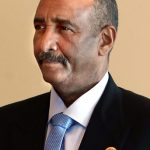Politics
Sudan Politics
This page explores Sudan’s political structure incorporating real-time RSS feed news and videos. By harnessing the power of RSS feeds, visitors can stay informed about the latest developments in Sudan’s politics as they happen. The dynamic nature of these feeds ensures that users receive up-to-the-minute updates on political events, policy changes, and significant milestones, enabling them to stay abreast of the ever-evolving political scene.

Abdel Fattah al Burhan
Chairman of the Transitional Sovereignty Council
Incumbent
Assumed office
25 October 2021
Image credit
Sudan operates as a federal republic with a political structure marked by a complex history of civil conflicts and political changes. The President of Sudan serves as both the head of state and head of government, and historically, this position held considerable power. However, following the ousting of President Omar al-Bashir in April 2019, Sudan has undergone a transitional period. The Transitional Military Council initially assumed control but eventually reached an agreement with civilian opposition groups, forming a transitional government. This government is characterized by a power-sharing arrangement between military and civilian leaders, including a Sovereignty Council and a Council of Ministers. The Sovereignty Council acts as a collective presidency, overseeing the transitional period until democratic elections can be held.
Sudan’s political landscape is diverse, with a history of ethnic and regional tensions contributing to past conflicts. The transition aims to address long-standing issues and pave the way for a more inclusive and democratic governance structure. Challenges persist, including economic difficulties and the need for reconciliation among various factions. The transition in Sudan is closely monitored by the international community, and efforts are underway to establish a more stable and representative political system that reflects the aspirations of the Sudanese people.
Unless other sources are listed, original content is provided by ChatGPT. ChatGPT may produce inaccurate information about people, places, or facts. #Sudan #SudanPolitics #SudanNews #SudanNewsToday #SudanRSSFeed #BlahFace



